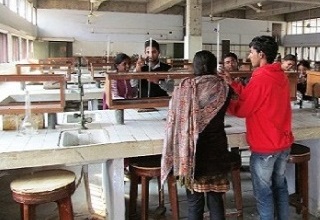Punjab technical varsity to upgrade technical education
Updated: Mar 20, 2014 02:03:43pm

The project is a part of the programme ‘Technical Education Quality Improvement Programme Phase-II (TEQIP-II)’ being implemented in the state as a centrally sponsored scheme, assisted by IRDB which is a part of the World Bank.
In a bid to procure electro chemical machining equipment, the University has invited bids from suppliers to be service providers.
TEQIP has an objective to improve efficiency and effectiveness of the technical education management system in the states and institutions selected under the programme.
The programme aims to upscale and support ongoing efforts of the central government to improve quality of technical education and enhance existing capacities of the institutions to become dynamic, demand-driven, quality conscious, efficient and forward looking, responsive to rapid economic and technological developments occurring both at national and international levels.
The International Bank for Reconstruction and Development has also tied with various other Indian universities to improve the standard of technical education, the University College of Engineering, Kota being one of them.
According to a pan-India labour report released by Teamlease, the largest staffing company, about 57 per cent of India's youth suffer from some degree of unemployability, while 53 per cent of the employed youth lack specific skill sets and only 8 per cent of youth are unemployed.
Even those who have an engineering degree are often not employable as they lack updated technical and soft skills. This is because, in most cases, the course curriculum is outdated and equipment used is obsolete.
Significantly, the rise in number of people who are unable to meet the industry's needs due to the failure of institutions to impart career-oriented knowledge and skills-set is a pressing problem, a report said. (KNN/ST)












